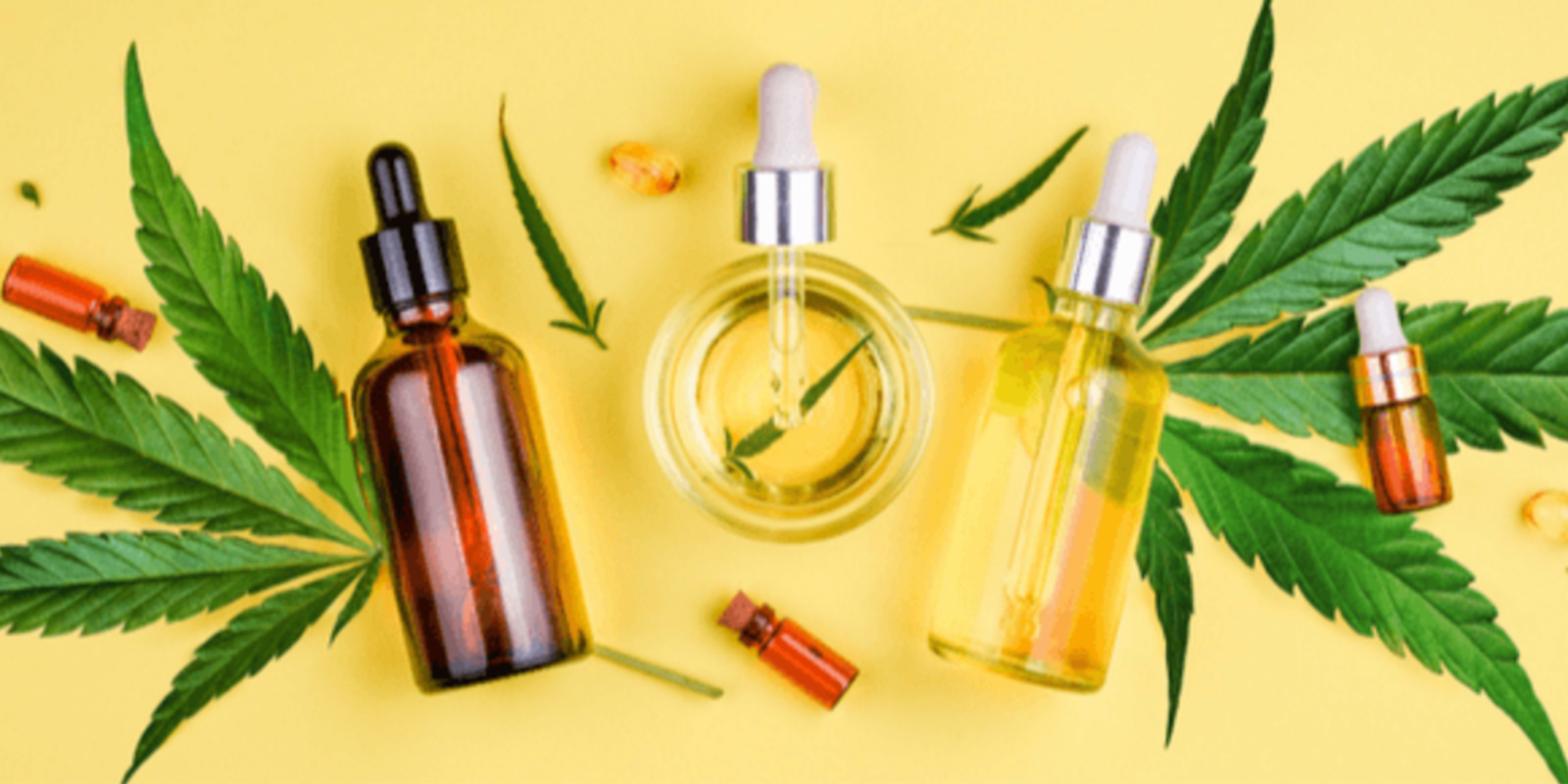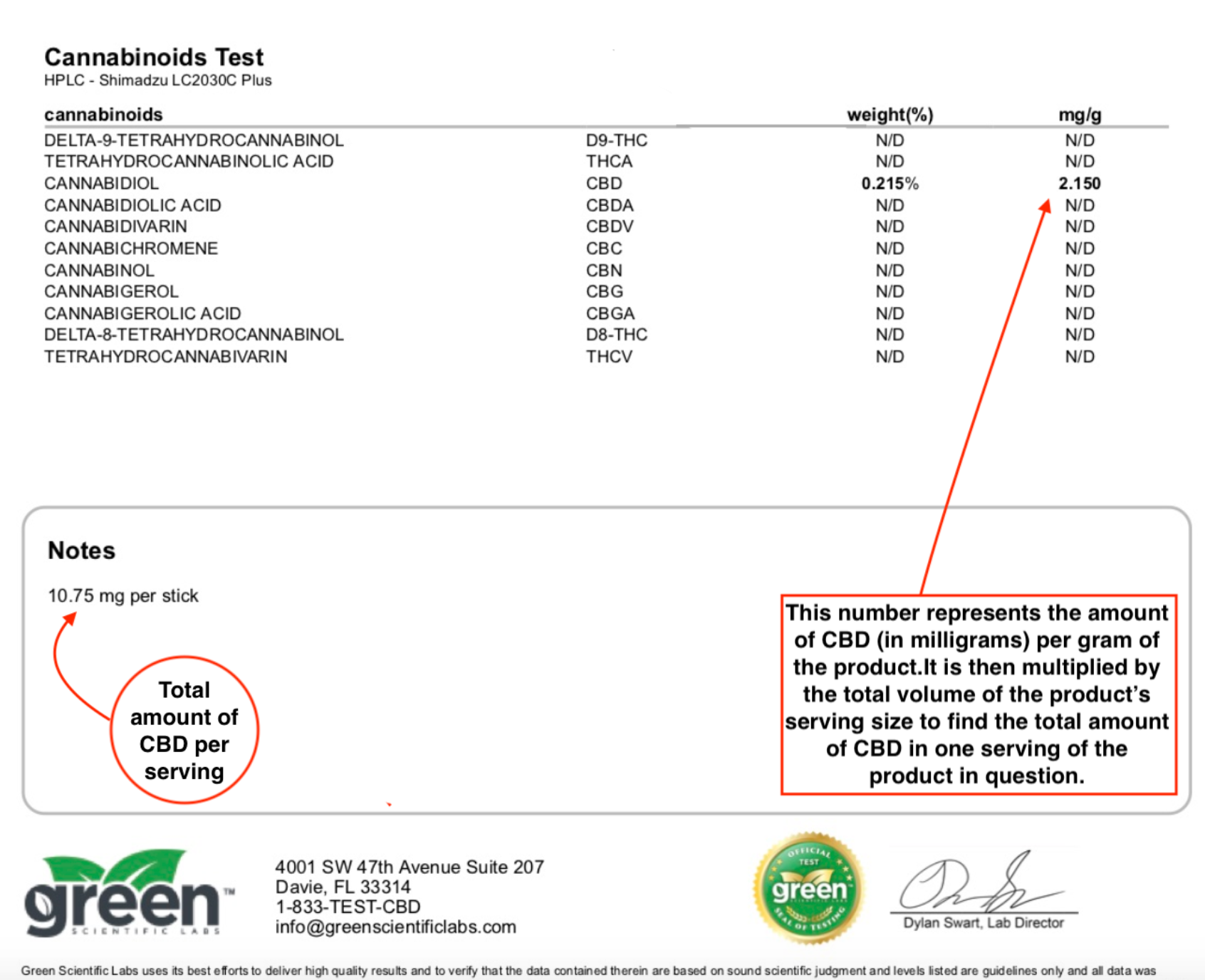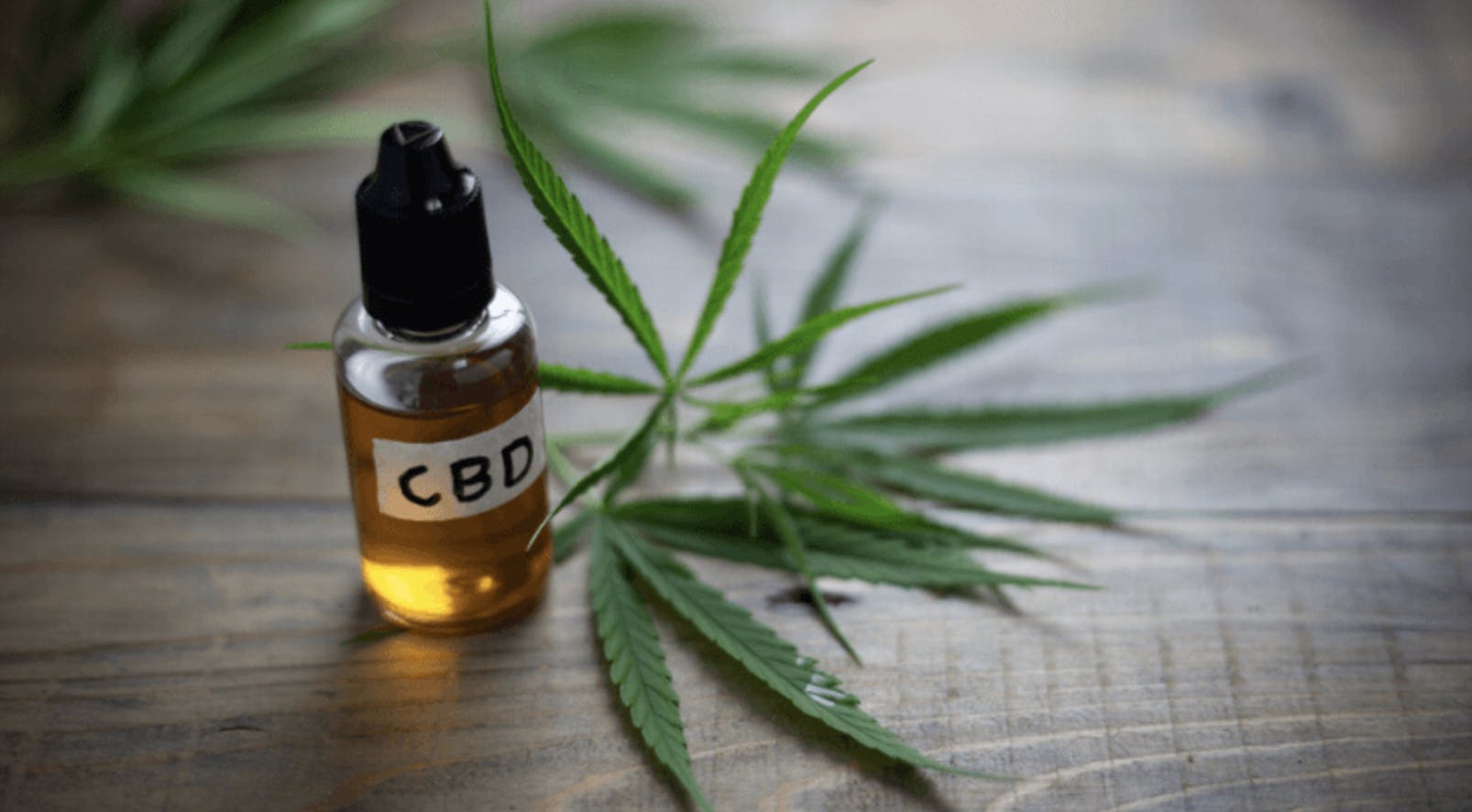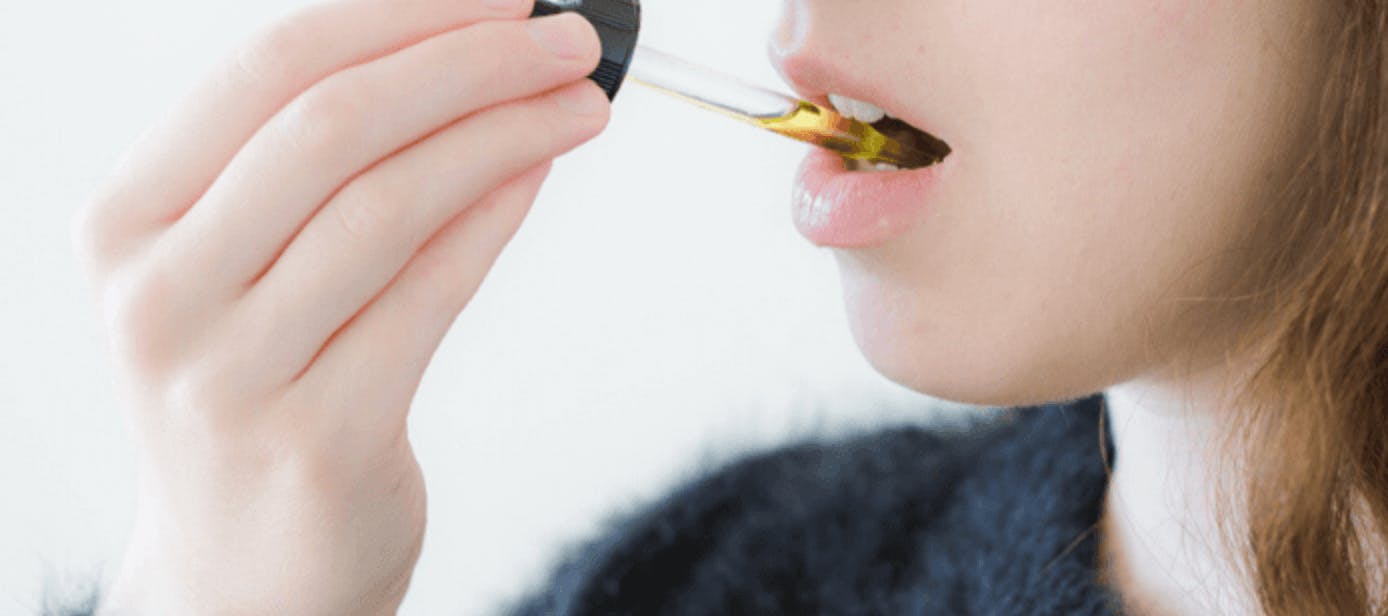It happened to me: I went from loving CBD edibles to consuming CBD everything–even the CBD tinctures. If I’m being honest, the idea of ingesting CBD oil wasn’t initially something I was excited about. My experience with tinctures prior to this was a few years ago, when I was given a couple of drops of a homemade weed tincture by a friend. And let me tell ya, that stuff was NASTY!!! So my hesitance, in this case, was well deserved.
However, after talking to the manager of my local CBD shop it came to my attention that the way you consume CBD actually matters when it comes to its effects on the user. And tinctures, it turns out, are one of the best ways to ingest it.
Presented by JustCBD
How to use CBD oil
Before you go consuming anything, it’s a good idea to know what it is you’re putting in your body. So for those of you new to this conversation, Cannabidiol (CBD) is one of the main chemical components found in the Cannabis sativa plant.
Unlike THC, CBD is not psychoactive, meaning it won’t get you high or alter your perception. Its effects, according to the British Pharmacological Society Journals, can help relieve a wide range of symptoms. This includes chronic pain, anxiety, seizures, and insomnia.
How is CBD oil regulated?
Since most of these products are listed as supplements and not medications, both the products themselves and their effects have not been regulated or substantiated by the FDA.
That said, since this isn’t a federally regulated industry. There are companies that falsify how much CBD is actually in the products. They attempt to get away with using synthetics. Sometimes, they even going as far as adding obscene amounts of melatonin to CBD edibles so consumers “feel” something. That’s crafty.
All of this is gross, so I’m going to tell you how to avoid it. Get ready, it’s pretty simple. READ THE LAB REPORTS AND INGREDIENT LABELS. I cannot stress this enough. Additionally, any reputable company will provide third-party lab results for all its CBD products. Why third-party?
Because outside, unrelated labs have nothing to gain from their conclusions. But in order to read the lab results, you’ll need to understand what they mean. I’ve provided an example using one of my favorite JustCBD products below.
I realize taking something not regulated by the FDA could be anxiety-inducing for some. However, don’t freak out just yet! Because the same can be said for the daily vitamins you take. They’re also considered dietary supplements, so they’re not regulated by the FDA.
If you do decide to try CBD, talk to your doctor first to avoid any potentially negative reactions. It has been known to interact with certain medications like blood thinners. CBD alters the levels of Coumadin in your bloodstream.
What are CBD oil tinctures?
You may already be familiar with the term “CBD oil,” but it comes in a variety of forms. There’s CBD oil for sublingual use, which is the focus of this piece (a.k.a. CBD oil tincture); CBD vape oil, which is only to be inhaled; and CBD-infused cooking oil for all of your food prep needs.
Even though these products all fall under the umbrella term of “oil,” they cannot be used interchangeably. So if you purchase a CBD vape oil, it cannot be substituted in a recipe–you can only inhale it. The same can be said for CBD cooking oils and tinctures. These are designed to be ingested rather than vaped, and using any of these products improperly can lead to serious complications. So don’t do it.
In order for CBD to work, it needs to make its way to your bloodstream. Depending on the method of consumption, your body may not be fully absorbing it. This isn’t an uncommon occurrence.
We see it all the time with other supplements. Take B12, for instance. The vitamin is offered in pills, chewable tablets, sprays, and even shots. Which have proven to be the most effective since it introduces B12 directly into the bloodstream.
Some things to consider when taking CBD oil
How well your body is able to break down CBD is unique to you. It’s dependent upon a bunch of physiological factors. It also depends on the quality of and way in which you’re consuming CBD. So that’s not to say CBD products other than tinctures don’t work at all, because in my experience, they do. But, if you have a slow metabolism or other health issues, your body may not have the ability to fully absorb the compound.
So you could be missing out on some of the key benefits, thinking that CBD doesn’t do anything for you. While the latter may be true (as only a doctor can tell you if CBD will work for your needs) it’s more likely that you just need to find a more effective way of consuming CBD.
According to CannaHealth, a leading researcher for medical marijuana and CBD news, the most successful way for the body to fully absorb the benefits of CBD is to smoke it or ingest it sublingually.
Smoking CBD flower provides immediate results as the CBD goes to work. It will take effect as soon as it’s inhaled and passed on to your bloodstream. But some people can’t smoke due to asthma and other lung problems, or they find smoking to be irritating, so it’s not the right option for everyone.
Will CBD tinctures irritate your throat?
CBD tinctures, on the other hand, won’t irritate your throat. However, like CBD gummies they won’t provide you with immediate effects. Taking CBD sublingually is more convenient than smoking (since CBD smoke still has the same stench as weed) and it makes the product easier to dose. But since it has to sit under the tongue for a minute before being absorbed into the mucous membranes and then eventually swallowed and digested, it can take up to an hour or two for users to see results.
In my own experience, I’ve found that CBD oil tinctures take around 30 minutes to take effect. Of the handful I’ve tried, two that really stood out to me are manufactured by JustCBD and are available online. I’ve included my review of them below.
Best CBD oil for beginners
1) Organic Coconut CBD Oil Tincture
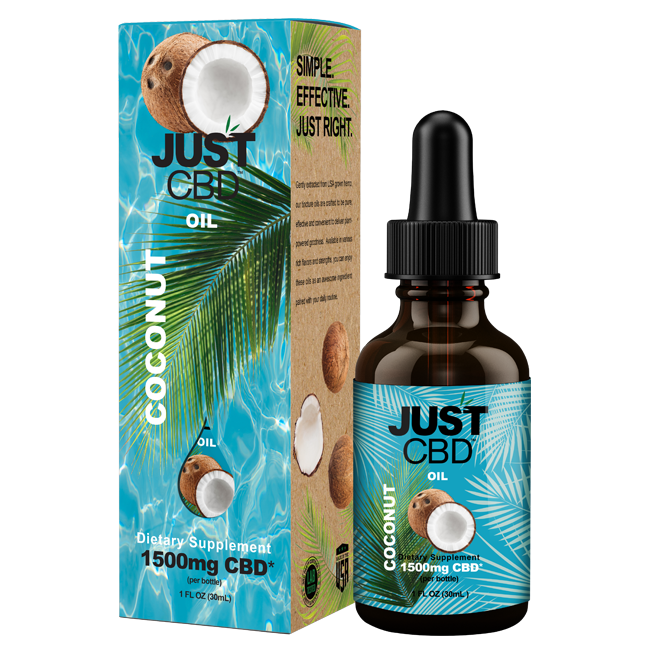
I started this piece complaining about the taste of tinctures, but that’s not something you’ll have to worry about with JustCBD’s Coconut Oil Tincture because it literally tastes like coconuts! And unlike other tinctures which use vegetable glycerin, this tincture is made with coconut oil–a natural MCT oil, which means you’re getting the benefits of healthy fats in addition to all the great effects CBD is known for. And for the cherry on top of this awesomesauce sundae: all of its ingredients are certified organic!
Price: $9.99 – $83.99
2) Organic Liquid Honey CBD Tincture
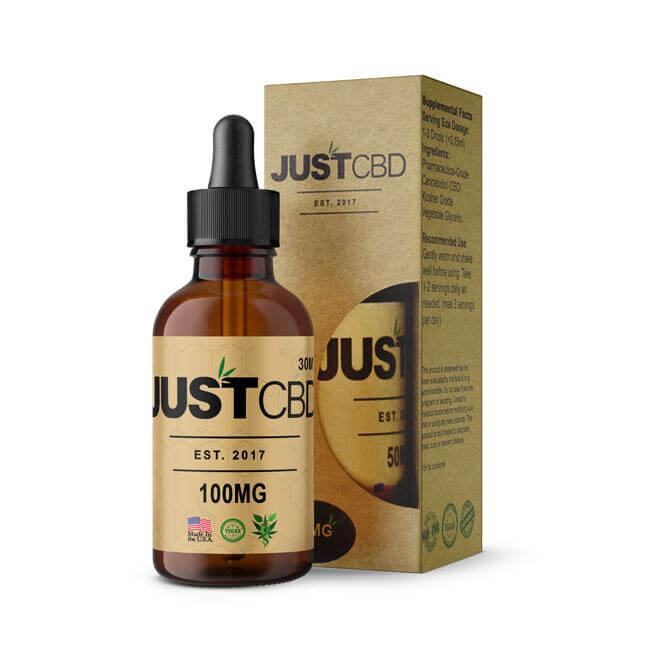
If you’re worried about the experience of taking CBD oil sublingually, JustCBD’s certified organic Liquid Honey Tincture offers a solution (as long as you’re okay with hemp-y flavors).
It’s much thicker than a traditional tincture, so instead of putting a drop of it under your tongue, you can dilute the tincture in an ounce of hot tea, let it cool, and let that sit in your mouth (which is what I did). When all is said and done, it becomes an inbetweener–not quite an edible, but no longer an oil-based tincture.
Price: $9.99 – $29.99
Still not sold on CBD oil tinctures? No worries, they’re not for everyone. Maybe you’d rather try something a little sweeter. If that’s the case, be sure to check out our guide to the best CBD edibles.
The Daily Dot receives payment for sponsored content. Interested in promoting your brand or product? Email us at bazaar@dailydot.com to learn more.

